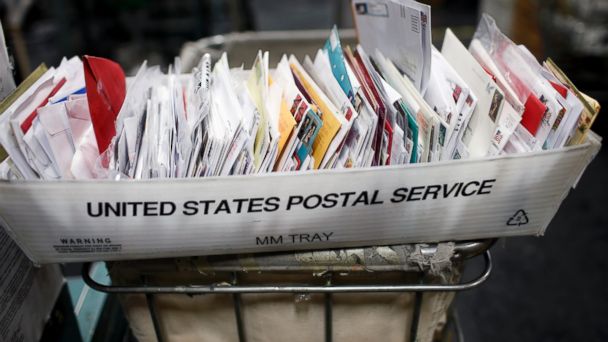Why Postal Service Officials Tossed and Turned All Night
An over-supply of packages is today's biggest concern for the U.S. Postal Service, which is bracing for the annual Christmas gift rush. This is expected to be its busiest day of the year, with more than 640 million cards, letters and packages being processed. Package delivery firms UPS and FedEx spent around a billion dollars each to upgrade facilities and vehicles, and to hire more temporary workers. Last year, rough weather and an increase in online shopping caused delays. Some gifts were not delivered in time for Christmas.
Most economists agree: the plunging price of oil is a gift to U.S. consumers and businesses. It's like a great big tax cut. So why has the slide in crude oil futures been blamed for the biggest weekly decline on Wall Street this year? The main reason is fear about the speed of the decline. Crude futures have plunged about 45 percent since June. "People are scared that the drop in oil demand is the first leg down for the global economy," Nancy Schmitt, president of Taum Sauk Investments, told The New York Times. Another cause is that investors don't like surprises. Extreme volatility in the oil market is a shock for fund managers, who are rushing to rebalance their portfolios as the end of the year approaches. After climbing to a record high earlier this month, The S&P 500 dropped 3.5 percent last week. The plunge on many overseas markets has been even greater. Asian stocks fell again overnight.
A six-month rout in the price of oil accelerated last week, culminating in a 4 percent drop Friday, sending crude futures below $60 a barrel - their lowest level since May of 2009. The trigger was a lowered forecast for global oil consumption from the International Energy Agency. That was a signal to investors that the global economy could be weaker next year. Despite weakened demand, OPEC decided to keep production levels steadily. The recent U.S. energy boom has also contributed to the over-supply of oil.
Taxi drivers have been blocking roads around Paris and its airports to urge the French government to ban ride-hailing service Uber. The demonstration comes as France's Interior Ministry says the company's low-cost service, UberPop, will be banned as of Jan. 1. Uber's online service is being challenged by the taxi industry and government regulators in some U.S. cities and overseas.
Macadamia nuts have, all of a sudden, become the hot snack in South Korea. Online retailers say demand has skyrocketed after a Korean Air Lines executive delayed a plane over an incident that's come to be known as "nut rage." The daughter of Korean Air's chairman forced a flight attendant off a flight 10 days ago after she was served bagged macadamia nuts, not on a plate.
Richard Davies Business Correspondent ABC News Radio abcnews.com Twitter: daviesnow 212-456-5100

(Photo Credit: Stephen Lam/Getty Images)